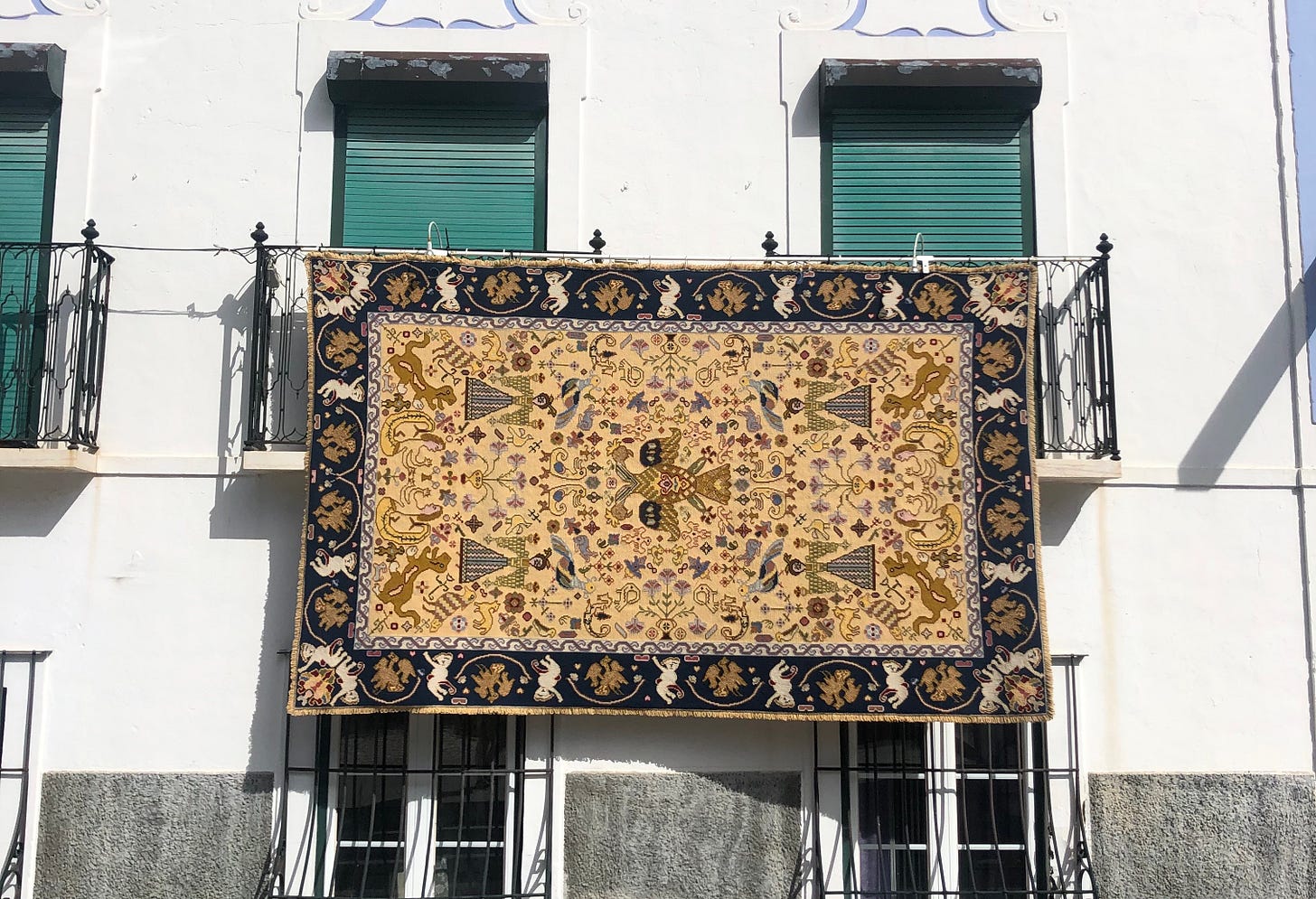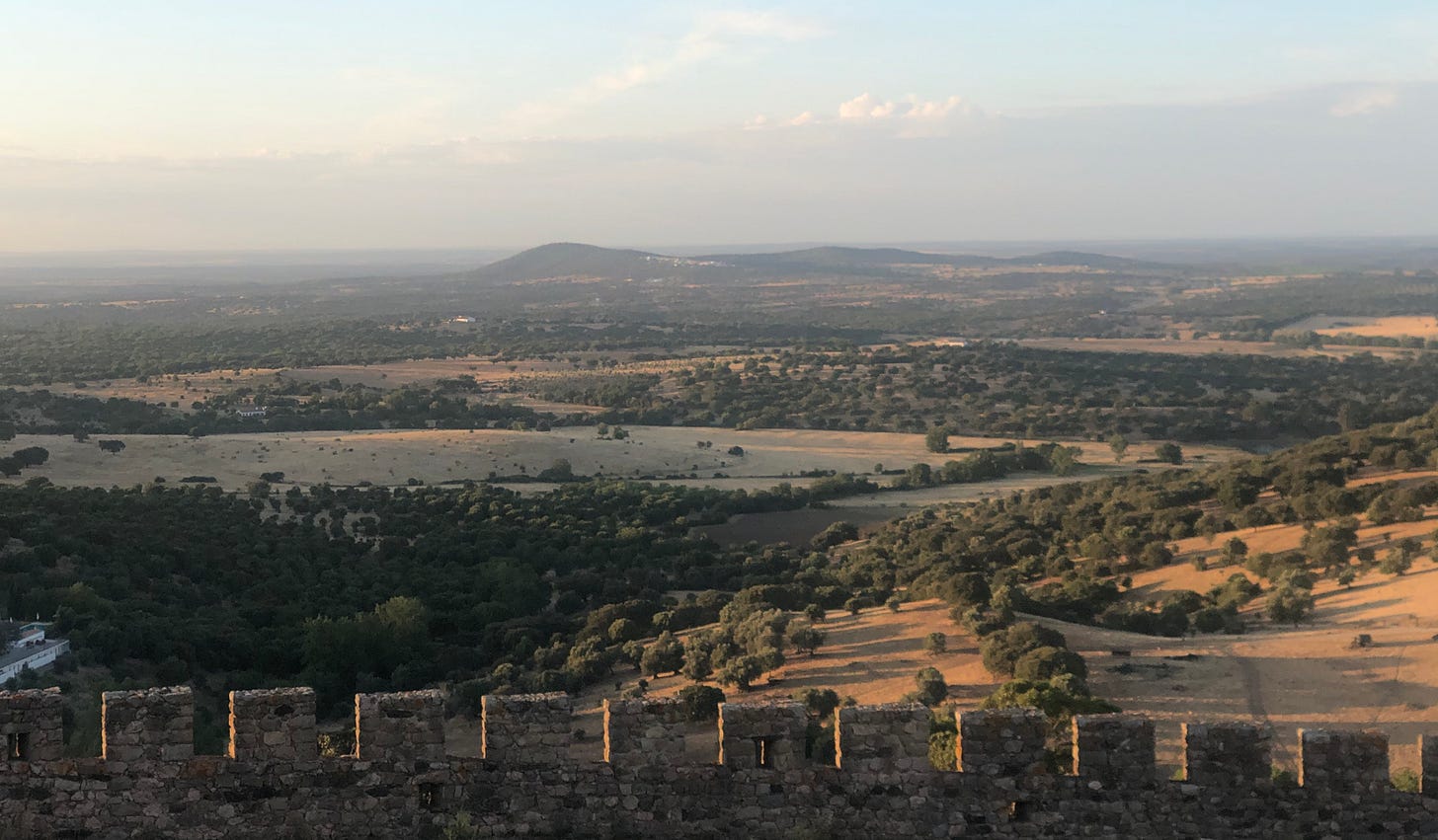Dear Readers: this is my first paywalled post. If you like reading my newsletter, you can make a small donation to unlock the rest of this letter and get a second, bonus publication like this every month. Thank you for all your support!
Two years ago, I set off to spend a month in the Alentejo desert in Portugal. I would live in a small village called Arraiolos, which is famous around the world, but only to people who love rugs. The local embroiderers use a special cross-stitch technique to cover burlap cloth with intricate patterns.
I’ve been thinking back on my time in Portugal because I started reading The Protestant Ethic and the Spirit of Capitalism. Tess Wei, who curated my current exhibition at Swarthmore College, recommended this book to me as we chatted on a walk through the old Quaker school’s campus. I was describing the difference in cultural orientations toward labor and faith that I noticed while researching industrial workers in Philadelphia. The capitalists, in the case of Glen Foerd’s leather factory owners, were German Lutherans; while their laborers were Polish Catholics. I observed how Christian spirituality worked on two planes, absolving the owners of their exploitive position through their individual piety, while simultaneously bringing comfort and community to ease the lives of the factory workers.
After Tess pointed me to Max Weber, I was surprised no one had told me about the book before. (“A failure on my part,” said Tom, my very well-read partner.) I’ve even written about the Protestant Work Ethic before — mostly to examine my own internal feelings about productivity and rest. I was excited, finally, to get into the origin of the phrase.
The book follows how Protestant rationalism changed the cultural revulsion toward auri sacra fames (despicable hunger for gold) into admiration for the ascetic, frugal life of the billionaire that maximizes profit as an end in itself. (Think Bill Gates and his horrible outfits.) Weber draws many contrasts between the traditionalist, Italian Catholic perspective on labor, and the emergent capitalist attitude that stirred in his home country of Germany, but ultimately found its most fertile ground in Philadelphia.
I don’t want to write too much about the book yet, because I have to admit that I am only 38 pages in. However, it’s made me feel extremely lucky to have visited Portugal, where that old traditionalist orientation toward work is alive and well.
Before I knew anything about Arraiolos and its rugs, I wanted to visit Portugal for all the classic reasons: the stunning landscape, delicious wine, colorful mosaic tiles, and stone architecture.
But also, I wanted to go because I have Portuguese heritage. My maternal great-grandparents immigrated from the Azores to Rhode Island as teenagers. The generations before them could have been whalers, judging by the industry that flourished on the islands. When the whaling trade began to diminish, Azoreans left to find steady manufacturing jobs in factories across the New England coast.
On old census cards, my ancestors are not white, but Portuguese. Like many in that generation who came to Ellis Island from Ireland or Italy, they readily altered their names, forgot their language, and gave up their cultural customs in exchange for the homogenous whiteness of the American dream. Growing up, I didn’t know a single word of Portuguese, and the year before I was born, my family made the final step of conversion from Catholic to Presbyterian.
Keep reading with a 7-day free trial
Subscribe to Labor Intensive Art to keep reading this post and get 7 days of free access to the full post archives.





